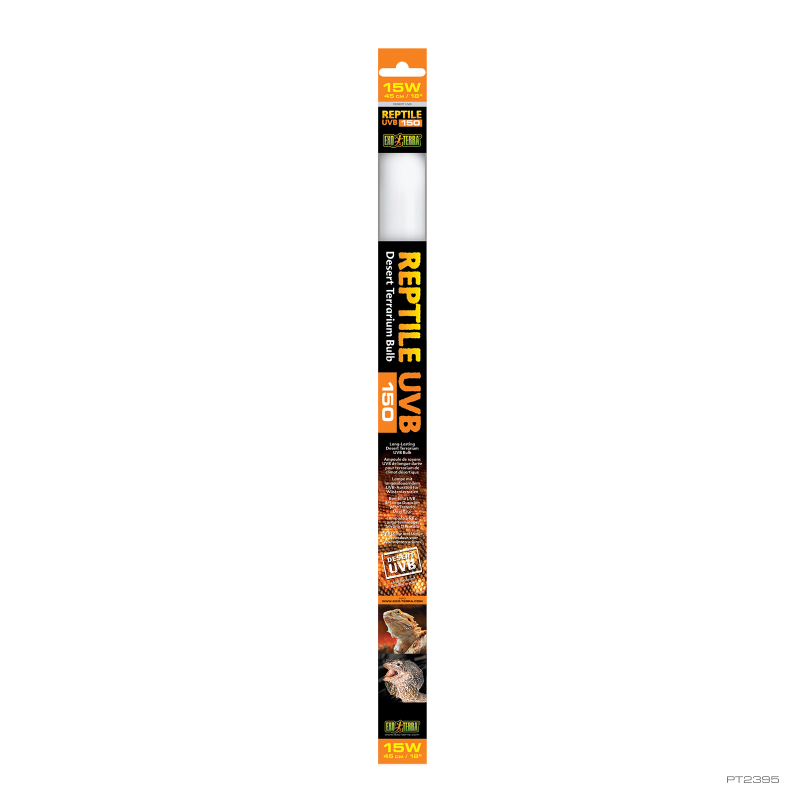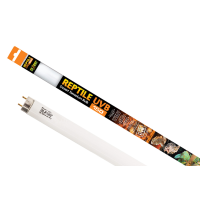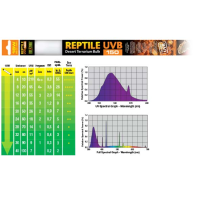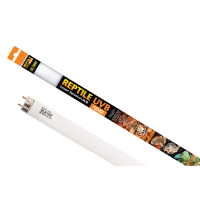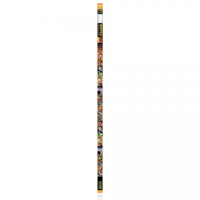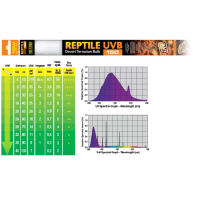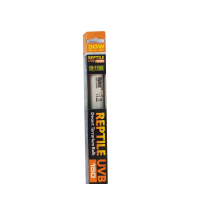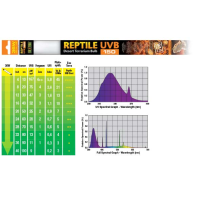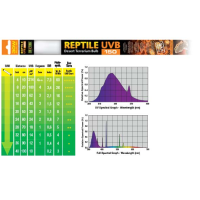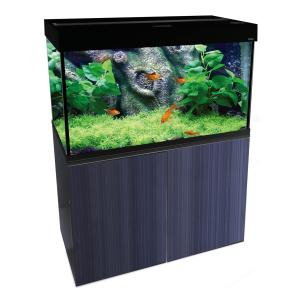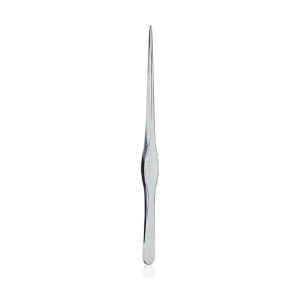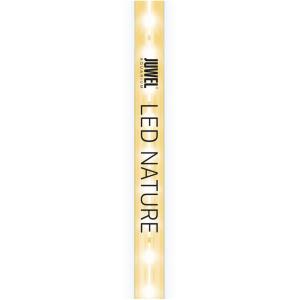Exo Terra Reptile UVB150 Desert Terrarium Linear Tube - 45cm 15W
The Exo Terra Reptile UVB150 has a very high UVB output similar to sunlight in deserts, where direct exposure is prominent.
This makes it ideal for desert reptiles, which experience higher UV radiation than other reptile types due to their habitat.
The Exo Terra Reptile UVB150 has a very high UVB output similar to sunlight in deserts.
These locations receive more direct sunlight, therefore desert reptiles are more exposed to UV radiation than any other type of reptile.
This bulb can also be used on terrariums with denser screen covers to ensure sufficient UVB penetration.
Dense screens can filter out up to 50% of the UVB rays.
The high Vitamin D3 yield index ensures vitamin D3 photosynthesis to aid calcium absorption and prevent metabolic diseases.
The longer sizes can be placed on multiple terrariums.
KEY FEATURES:
- Ideal for all desert dwelling reptiles
- High UVB output
- Very high D3 conversion
- Provides necessary UVB rays for optimal calcium metabolism
- Recommended for terrariums with dense screen covers
- Wattage: 18W
- Dimensions: 60 cm (24")
BENEFITS:
Prevents Metabolic Bone Disease
- Metabolic bone disease (MBD) is a prevalent disorder in captive reptiles.
- MBD is caused by mineral imbalances, particularly calcium and phosphorus, along with inadequate Vitamin D3.
- Symptoms of MBD include weak bones, tremors, and lethargy.
- Lack of ultraviolet B (UVB) light exposure is a crucial factor in causing MBD.
- UVB light exposure is essential for reptiles as it enables Vitamin D3 synthesis.
- Vitamin D3 synthesis facilitated by UVB light is vital for proper calcium processing.
Enhanced Immunity
- UVB light is crucial for reptile health, particularly in the synthesis of Vitamin D3.
- Vitamin D3 contributes to reinforcing the immune system of reptiles.
- Reptiles absorb UVB rays to produce vitamin D3, which aids in regulating immune responses and fighting diseases.
- Adequate UVB exposure is key in enhancing the immunity of reptiles, reducing their vulnerability to different ailments.
Improved Appetite
- Exposure to UVA and UVB wavelengths triggers natural behaviours and encourages appetite, breeding, and overall reptile health.
- UVA rays primarily contribute to enhanced well-being and vision, influencing behaviours such as mating and food foraging.
- When UVA and UVB light are combined, they stimulate a reptile's appetite, leading to increased activity and a greater inclination to eat.

